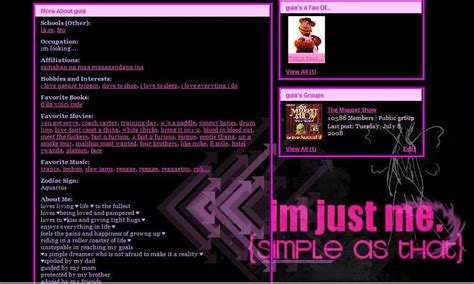When considering the current landscape of social media platforms, names like Facebook, Instagram, and TikTok often dominate the conversation. However, there exists a less glamorous, yet utilitarian platform: Craigslist. While it might not boast flashy features or a sleek design, Craigslist continues to be a critical resource for buying, selling, job hunting, and even community building. The ongoing debates among users about its imperfections, particularly regarding spam management, only underscore its longstanding presence and the loyal user base it maintains.
One of the main criticisms levied against Craigslist revolves around spam listings. Indeed, the user experience can be marred by repetitive and often fraudulent listings. Imagine filtering through dozens of identical ads for dubious car loans or non-existent apartments. It may seem perplexing that such a well-established platform hasn’t implemented more effective spam filters. While Craigslist does offer a ‘hide duplicates’ checkbox, it raises the question of why users should have to engage with obvious spam in the first place. Regular users have grown accustomed to tuning out these listings, yet the frustration remains palpable.
Interestingly, some argue that Craigslist’s less aggressive stance on spam might be a strategic decision rather than a flaw. As one perspective posits, by refusing to fully engage in the ‘spam arms race,’ Craigslist makes spam more obvious and easier for users to recognize. This tactic avoids the pitfalls of more sophisticated algorithms that could inadvertently miss more cunning forms of spam. In a sense, Craigslist’s transparency with its users about the presence of spam can reinforce user diligence and awareness.
The contrast between Craigslist and other platforms like Facebook Marketplace highlights diverse user needs and expectations. For sellers, Facebook offers various vetting tools such as ratings and mutual connections, ostensibly increasing trust between buyers and sellers. But this transparency also comes at the cost of privacy. Many Craigslist users prefer its simplicity and anonymity, allowing them to meet at neutral locations for transactions without revealing personal information. This preference signifies a clear market demarcation between those seeking enhanced security features and those valuing straightforward, anonymous interactions.
Yet, Craigslist’s laissez-faire approach does draw criticism regarding its ethical implications. Scammers who exploit the platform often victimize less savvy users. This aspect leans towards an ethical gray area where Craigslist’s minimal intervention might indirectly abet low-effort scams. Some suggest implementing modest measures like charging for listings, which could deter spammers by introducing a financial barrier, thereby making scams less economically viable. Others favor real-time verification processes for high-value transactions to help foster a safer environment.
Craigslist’s longevity is also a testament to its core philosophy of putting community needs ahead of commercial exploitation. Unlike many tech companies that aggressively monetize their user base, Craigslist continues to prioritize usability and accessibility. This approach resonates deeply with users who grew tired of the relentless monetization tactics seen across other platforms. Quotes from past interviews with Craigslist executives reveal a steadfast commitment to keeping the platform as a community service rather than a revenue-maximizing machine, a stark deviation from the standard Silicon Valley playbook.
Despite its flaws, one cannot ignore Craigslist’s role in shaping the internet as a tool for practical and local interactions. Whether you’re looking for furniture, a new job, or even community events, Craigslist offers a unique space that other platforms have yet to replicate in their entirety. As we move further into an era dominated by curated feeds and algorithm-driven content, there is a nostalgic charm in Craigslist’s simplicity. It reminds us of a more straightforward digital space where the human element isn’t buried under layers of analytics and advertisements.
Ultimately, Craigslist persists because it resonates with a fundamental human need for uncomplicated, direct exchange. Its design may be criticized as outdated, but for many, that’s precisely the appeal. It’s a bastion of the early internet ethos, prioritizing function over form, community over clicks, and honesty over flash. The conversation around its value today is not just about the platform itself but a reflection on what we as users desire from our digital spaces. In an increasingly commercialized and data-driven world, Craigslist’s enduring relevance is a quiet but profound statement on the resilience of simpler, user-centered design.


Leave a Reply